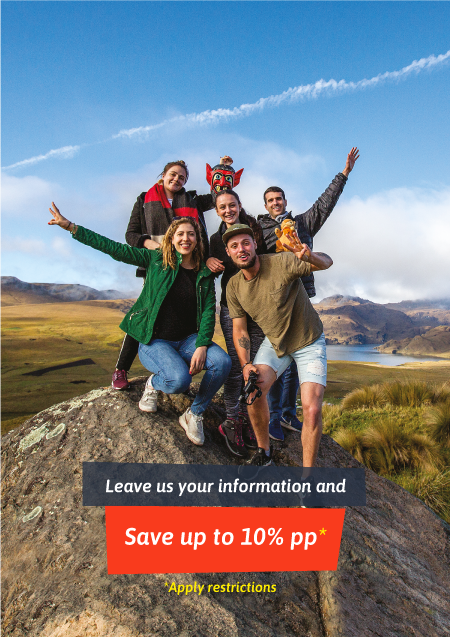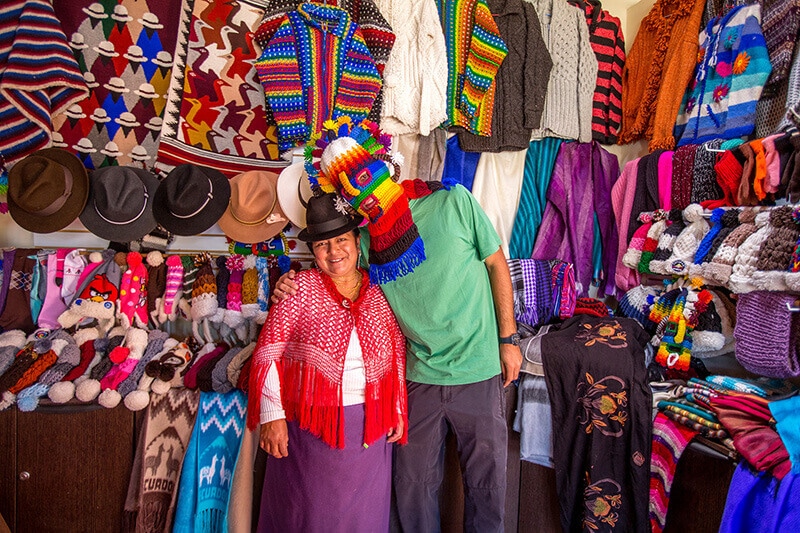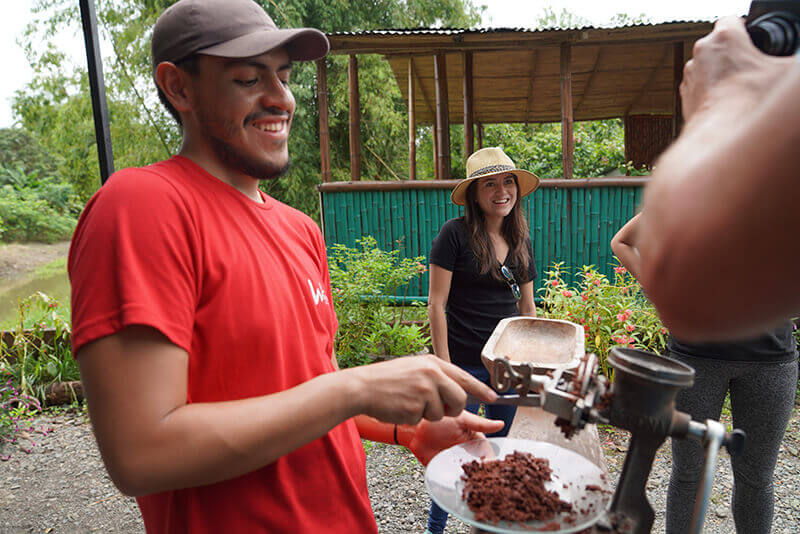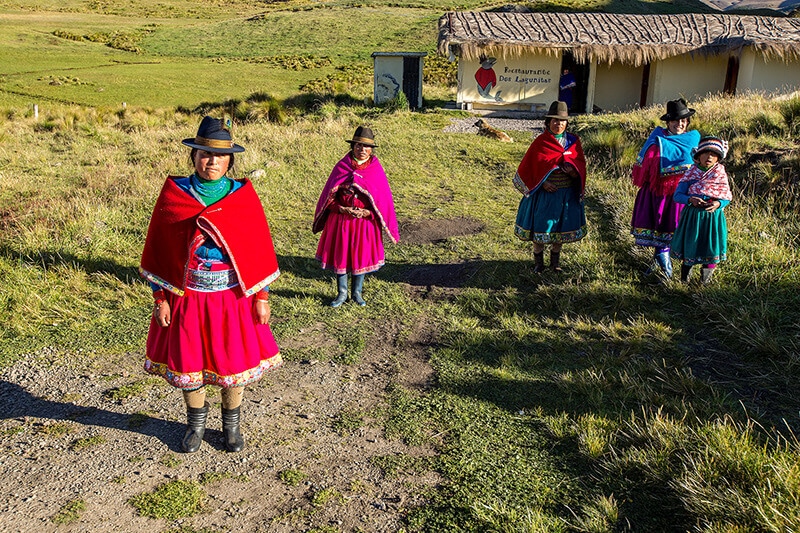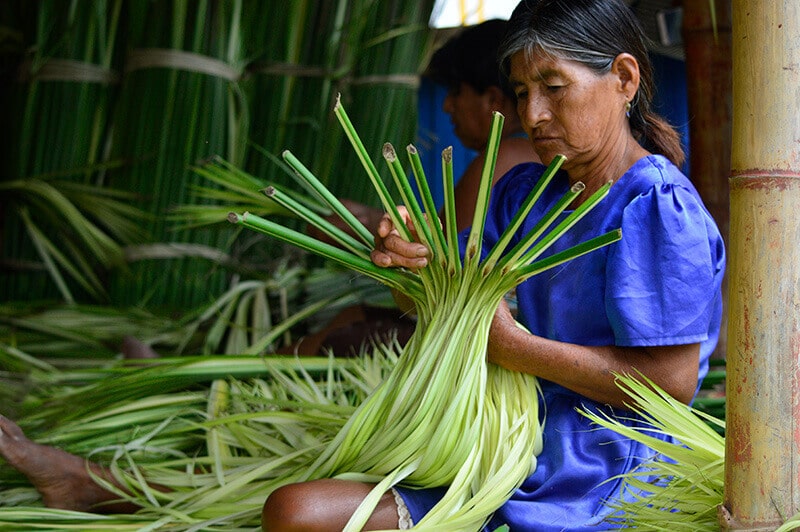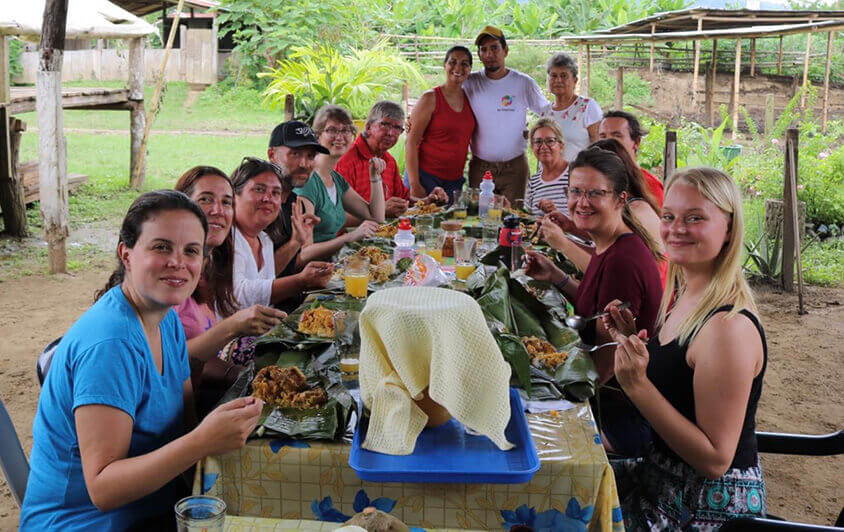We are proud to share the news that Wanderbus is the first Ecuadorian travel company to receive the B Corp certification as a start-up.
Why did we decide to become a B Corporation?
We founded the Wanderbus in 2018 in order to share Ecuador’s natural wonders, its culture and the kindness of its people with travellers the world over, creating an innovative travel product that offers safe, flexible, engaging and fun experiences. Through our inclusive, fair and positive approach to everything we do, we aim to contribute to the development of regions and communities all around the country.
As a travel company seeking to create value and positive impact at all times, and which has a broad and varied — and sometimes delicate — supply chain, we wanted to ensure we were doing things right, as well as secure the commitment of all our team to a socially- and environmentally-responsible company philosophy. That’s why becoming a B Corp seemed an obvious challenge to set ourselves.
What is a B Corporation?
Certified B Corporations are a new kind of business that balances purpose and profit. They are legally required to consider the impact of their decisions on their workers, customers, suppliers, community, and the environment. It’s a community of leaders, driving a global movement of people using business as a force for good. There are currently nearly 3,000 B Corp companies in over 60 countries.
Embedding sustainability into our B Corp in Ecuador business
By becoming a B Corp in Ecuador, we are committed to embedding a sustainable model of continuous improvement into our business. We will therefore adopt a “triple bottom line” approach. This means that while financial success is obviously key to running and growing our business, we will assess and be judged on our social and our environmental impact, too.
Our annual reports will now include our performance in the following B Impact criteria:
- Workers
- Customers
- Community
- Environment
- Governance
Values for decision making
Using the B Impact criteria provides our leadership team with a clear framework and a broader view of our business and stakeholders when taking decisions. The approach has already informed our choices about our use of plastics, operations, suppliers, and partnerships with other companies and organizations.
Transparency for stakeholders
Being a B Corp clearly communicates to stakeholders and customers our values, commitment and the transparency of our performance. It helps us stand-out and align with like-minded people and organizations.
Being part of a community of B Corp in Ecuador
Being a B Corp is about being part of a community, even a nascent one here in Ecuador — where there are still only half-a-dozen B Corps. We look forward to helping other businesses to build a better future together.
Ok, so what does this look like in practice?
The Wanderbus continuously seeks to offer our passengers local products whenever and wherever possible — our free snacks onboard are Ecuadorian plantain and potato chips, not Oreos! We encourage passengers to expand their Spanish vocabulary and learn Kichwa words while on-board, so that they improve their interactions with local people when we visit markets, artisans or remote communities. We stop at crafts stores and food stalls we know our travellers will appreciate and learn from, and which in turn generate incomes and help traditions and crafts to be valued.
We’ve eliminated single-use plastic water bottles from our buses by carrying 5-gallon water tanks on board for our passengers to fill up their water bottles with, for free. If travellers don’t have personal water bottles, we give them their own.
How do we work with communities to create positive impact?
By visiting off-the-beaten-track places, we are generating welcome additional revenues for communities. We are conscious of the importance of working hand-in-hand with each of them, ensuring we all walk on the same path towards a sustainable and equitable future. We are currently working with the following communities on our routes:
Ozogoche Alto, Chimborazo
Located in the province of Chimborazo, in the heart of the Ecuadorian Andes, this community of around 60 families makes a living from cattle farming, selling milk and animals. The community was included within the boundaries of Sangay National Park in the 1990s, a situation that, although positive for the conservation of the páramo ecosystem, limits their agricultural and livestock activities.
With this context, we believed it was key to include this community on our routes, helping promote the beautiful Andean lake scenery of which they are the guardians to a wider audience, and thereby providing them with a sustainable economic alternative. Since we began working with the community in the summer of 2018, hundreds of travellers have enjoyed their welcome and the incredible Andean landscape of Ozogoche Alto, generating stable incomes for three families.
We have already worked on improving the visitor experience by ensuring that elements of the community’s culture are more evident and assuring that the dishes served incorporate important, and nutritious, Andean ingredients such as potatoes, beans, pulses and lupin beans.
In Ozogoche Alto we are currently working on:
- improving the infrastructure of the dining room for visitors
- training the women in food and beverage handling
- training them on improving their guiding skills
Barcelona, Santa Elena
This small town is located in Santa Elena Province, about a twenty-minute drive south of Montañita. It’s one of the key processing sites for paja toquilla straw in the country, the material used to make the famous Panama Hats — which are in fact from Ecuador! The milliners are mainly women, who have organized their own self-governing cooperative.
By visiting Barcelona, we want to promote this important traditional Ecuadorian craft and enable the women’s cooperative to sell directly to the consumer, not through intermediaries. Every dollar spent here will directly benefit many families.
Our next steps in our collaborative work with the cooperative are:
- Installing a photo gallery to tell the story of the processing of the straw into hats.
- Seeking to have fair-trade stores in Quito stock the organization’s products.
Mate de la Fortuna, Manabí
The Ecuadorian coastal province of Manabí is one of the most celebrated when it comes to cuisine. Cocina Manabita is highly-regarded for its varied ingredients and delicious flavours (which include green plantains, ripe plantains, fish, crabs, manioc, peanuts, lemon and coconuts) that Manabas prepare and combine in mouth-watering ways. In order to help travellers to experience these delights and local life first-hand, the Wanderbus visits the Zambrano family, who show us their agro-forestry, organic farm and share their secrets for preparing a delicious tonga, a traditional plantain-based dish, for lunch.
Although we have only been working with the Zambrano family for a few months, we can already feel the positive impact our visit is producing, helping them (and two more neighbouring families who assist them) to earn additional income. We have also agreed to transport their organic agricultural produce (think piles of bananas, plantains, pineapples, fruits, yucca..!) on the bus up to Quito for free, enabling them to negotiate better prices.
Our next objectives in supporting this family are:
- Help them to find funds to rebuild the bridge that connects their farm with the outside world (it was damaged in the rainy season of 2019).
- Training for building ecological bathrooms
- Create a modest store for the family to sell crafts and traditional sweets from the region to visitors.
What the future holds
The Wanderbus is a young company. We only began operations in July 2018. We have a long and winding road ahead of us to make our mission of sharing the country we love with travellers from around the world in a fun, fair and enriching way a reality.
We’re convinced that tourism can be a force for good in Ecuador. It generates much needed incomes for local people of every creed and colour (many of them women), whether in rural or urban contexts. It provides an economic alternative to more harmful, extractive industries, or ones that add little or no value to goods before they leave the country.
Becoming a B Corp in Ecuador is a challenge that we undertake with all the seriousness, passion and dedication (read long hours!!) that have enabled us to grow since our inception. Becoming a Pending B Corp is the first step. We are convinced it’s the way forward for our company.
We look forward to sharing this vision, and joining forces with passengers, workers, supply chain partners, our community and wider society over the coming months and years as we #BeTheChange!
